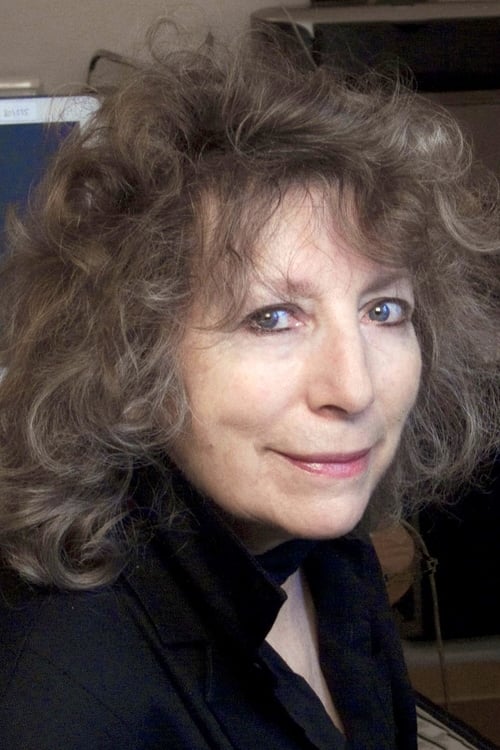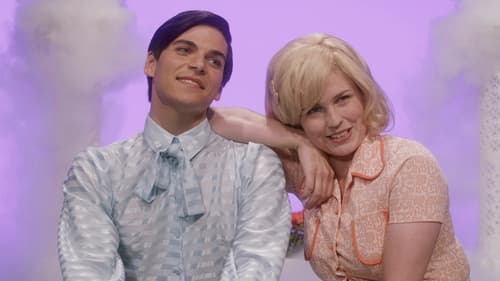
Lighting Production Assistant
Rex Gildo’s songs and musicals made him very popular. His best-known song was “Fiesta Mexicana” from 1972. Rosa von Praunheim tells the story of his life in the context of the gay pride movement, the normative pressures of the Schlager music industry, and the profound changes currently underway.

Writer
Documentary about street art in Berlin.

Director of Photography
Documentary about street art in Berlin.

Director
Documentary about street art in Berlin.

Director of Photography
About Stefan Stricker, who calls himself Juwelia and has been running a gallery on Sanderstraße in Berlin Neukölln for many years. Every weekend he invites guests to shamelessly recount from his life and to sing poetic songs written with his friend from Hollywood Jose Promis. Juwelia has been poor and sexy all her life, has always struggled for recognition, but only partially.
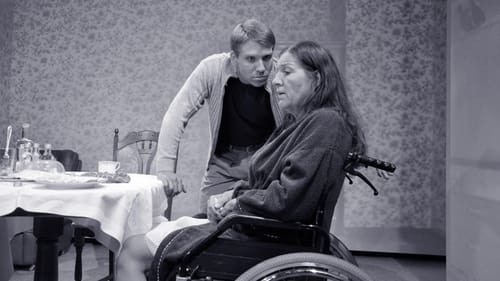
Director of Photography
Half documentary, half docu-drama about a German karate champion, who used to be a successful pimp...
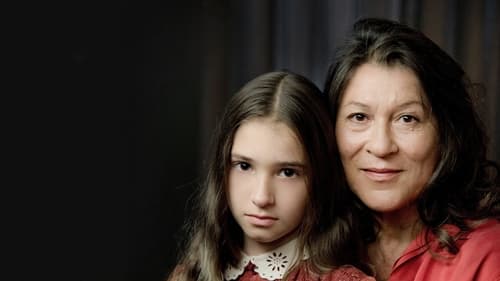
Writer
It’s the early 1950s and little Franzi is growing up in the small Austrian town of Judenburg. Her oppressive family home is dominated by her feverish and mentally ill father, who is rigid and unpredictable. Her father, who regularly delivers halves of pork for the butcher, spent several years in the French Foreign Legion in Morocco, Algeria and Syria – a period which he partly glorifies but which still also haunts him. Franzi immerses herself in this world by looking at an abundance of beguiling yet disturbing photographs taken at the time by her father. Her own childish fantasy realm of fairy tales and picture books soon intermingle with nightmares as reality merges with imagination, war, horror and beauty.

Director
It’s the early 1950s and little Franzi is growing up in the small Austrian town of Judenburg. Her oppressive family home is dominated by her feverish and mentally ill father, who is rigid and unpredictable. Her father, who regularly delivers halves of pork for the butcher, spent several years in the French Foreign Legion in Morocco, Algeria and Syria – a period which he partly glorifies but which still also haunts him. Franzi immerses herself in this world by looking at an abundance of beguiling yet disturbing photographs taken at the time by her father. Her own childish fantasy realm of fairy tales and picture books soon intermingle with nightmares as reality merges with imagination, war, horror and beauty.

Director
Rosa von Praunheim is an icon in the scene: gay activist, loving provocateur and a very special filmmaker from Berlin for decades. His curiosity for people and their fates runs through his extensive film work. For his 70th birthday he has now made 70 new short films. In the first part of the big project, he confronts Thilo Sarrazin with the mayor of Neukölln, Heinz Buschkowsky, and the Turkish lawyer and women's rights activist Seyran Ates; shows a homosexual hustler in Bucharest; gossip reporter Andreas Kurtz, who knows everything about Berlin's celebrities; Rosa's neighbors who live with her dependent brother; Esther Bauer, who survived Auschwitz, and the Berlin comedian Ades Zabel. High on the roofs of Berlin, the gay chimney sweep Alain Rappsilber tells him about his fetish leather meeting Folsom.

Writer
Werner Schroeter was one of the most significant proponents of New German Cinema. Schroeter was diagnosed with cancer in 2006. In her film, Elfi Mikesch, who photographed a number of Schroeter’s films and who collaborated closely with him to create his vision, provides us with an intimate insight into Schroeter’s artistic output during the remaining four years of his life.

Director of Photography
Werner Schroeter was one of the most significant proponents of New German Cinema. Schroeter was diagnosed with cancer in 2006. In her film, Elfi Mikesch, who photographed a number of Schroeter’s films and who collaborated closely with him to create his vision, provides us with an intimate insight into Schroeter’s artistic output during the remaining four years of his life.

Director
Werner Schroeter was one of the most significant proponents of New German Cinema. Schroeter was diagnosed with cancer in 2006. In her film, Elfi Mikesch, who photographed a number of Schroeter’s films and who collaborated closely with him to create his vision, provides us with an intimate insight into Schroeter’s artistic output during the remaining four years of his life.

Director of Photography
Documentary about Austrian city Judenburg and its art scene.

Writer
Documentary about Austrian city Judenburg and its art scene.

Director
Documentary about Austrian city Judenburg and its art scene.

Director of Photography
A retrospective look at the making of "World on a Wire".

Director

Director of Photography
A documentary about the making of the television mini-series by Rainer Werner Fassbinder, including interviewees with the principal actors.

Director of Photography
Heinz Emigholz, the premiere purveyor of architectural oddities (Sullivan's Bridges, Goff in the Desert), meticulously documents 15 rooms of the enormous Villa Cargnacco in Lombardy, Italy, designed by proto-fascist poet Gabriele D'Annunzio (1863-1938). The controversial figure spent 17 years designing the Vittoriale, a state museum on Lake Garda, and furnishing the Villa Cargnacco, which is part of the grand complex. This unusual documentary resulted from a photography session in the villa, when four friends--cinematographers Irene von Alberti, Elfi Mikesch, Klaus Wyborny and Heinz Emigholz--simultaneously filmed the rooms and furnishings of the villa in their own specific styles.

Director of Photography
Interview with Christoph Schlingensief on his films. Including many film clips.
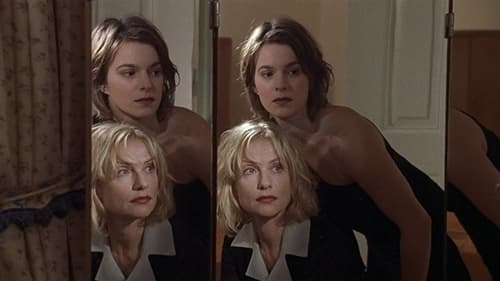
Director of Photography
Magdalena y María son dos hermanas gemelas que fueron separadas al nacer y no saben nada de la existencia del otro. María huye del colegio en el que ella se crió y encuentra trabajo como artista de cabaret en los cafés de Marsella. Magdalena vive con sus padres adoptivos y trabaja en una galería de arte. Las dos hermanas están unidas por un vínculo invisible que les atrae hacia un final trágico.

Director of Photography
A feature-length documentary on Yvonne Bezerra de Mello, award-winning artist and human-rights activist who has gained international recognition for her work with street children in Rio. The film recounts how a woman turned her back on a wealthy lifestyle, driven into action by the execution of 8 streetkids by military police in 1993. In subsequent years Yvonne's struggle to better the lives of endangered and abandoned children has led her to found "Projeto Uere" ("Children of Light") a radical project committed to protection and education of kids who live in the streets and slums of Rio which has brought her into conflict with Brazil's wealthy elite.

Director of Photography
This film tells the story of Markus Anatol Weisse, who, astonishingly enough, became an artist, in spite of being only very partially sighted. Markus also builds strange machine-like beings and wishes that he himself were a biological robot, or cyborg.

Book
This film tells the story of Markus Anatol Weisse, who, astonishingly enough, became an artist, in spite of being only very partially sighted. Markus also builds strange machine-like beings and wishes that he himself were a biological robot, or cyborg.

Director
This film tells the story of Markus Anatol Weisse, who, astonishingly enough, became an artist, in spite of being only very partially sighted. Markus also builds strange machine-like beings and wishes that he himself were a biological robot, or cyborg.

Director
A portrait of five St. Petersburgians and their connection to The Hermitage.

Director of Photography
Mucho antes que las revueltas de Stonewall y el informe Kinsey, vivió el doctor Magnus Hirschfeld. Siendo un joven judio gay en el Berlín del siglo XIX, Hirschfeld no sólo luchó a favor de los derechos de los gays, sino que fue su descubridor.
Rosa von Praunheim, co-fundadora del movimiento de lucha por los derechos civiles para los gays en Alemania y directora de cine, cuenta la historia de Hirschfeld en un exuberante drama histórico. Enlazando una historia fascinante de descubrimiento y romance con una mordaz afición por la política, Von Praunheim presenta este convincente relato del doctor que fundó el primer grupo político gay en 1897 y la primera institución médica para gays, el reconocido Instituto de Ciencia Sexual, que prosperó hasta la llegada del regimen nazi. En Einstein of Sex (apodo que dio a Hirschfeld la prensa americana) un legendario pionero del sexo se encuentra con un inconformista director para crear juntos una celebración de la historia gay.

Director of Photography
Documentary musing upon the work of German filmmaker Rainer Werner Fassbinder.

Director of Photography
Two sisters try to manage life alone after their mother's accident.

Director
Documentary film.

Self
On the occasion of the 30th birthday of the German Film and Television Academy Berlin, founded in 1966. Graduate Barbara Teufel accompanies a camera seminar led by director Elfi Mikesch. The students are to produce three short films on the subject of blindness with "real" blind people. Absurd, you think at first...

Director of Photography
German director Werner Schroeter invited his favourite opera singers to a 13th century abbey near Paris. There was no pre-planned action. There was no script, no continuity. On the other hand, there were precise constraints that provided the rules of the game: the setting, the Abbey of Royaumont, and the chosen participants. Each singer came accompanied by a person of his or her choice, and worked on an aria chosen by the director.

Director of Photography
The story of a child who faces the emptiness that surrounds the figure of his parents, disappeared in Africa.
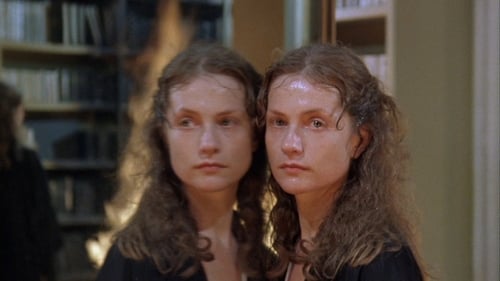
Director of Photography
Película basada en una novela de Ingeborg Bachmann, con guión de la Premio Nobel de Literatura Elfriede Jelinek. Cuenta la historia de Malina (Isabelle Huppert), una mujer que encierra una doble personalidad.

Writer
A woman reflects on her romantic relationship with a young moroccan years ago. Her daughter travels to Morocco, attempting to relive her mother's past.

Director
A woman reflects on her romantic relationship with a young moroccan years ago. Her daughter travels to Morocco, attempting to relive her mother's past.
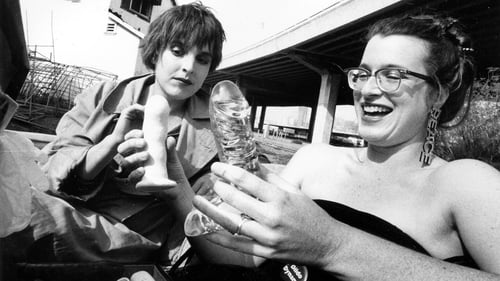
Director of Photography
A German woman travels to San Francisco to find her mother, but winds up distracted by the sexually flamboyant culture of the city.

Producer
A German woman travels to San Francisco to find her mother, but winds up distracted by the sexually flamboyant culture of the city.

Director of Photography
En la Berlín moderna (1987), Frau Kutowski se vuelve loca, creyendo que es la notoria (real) Anita Berber, una bailarina de arte desnuda / drogadicta / figura escandalosa de Berlín posterior a la Primera Guerra Mundial. (Berber murió de tuberculosis en 1928, después de haber logrado un éxito y un reconocimiento significativos en todo el mundo de la danza). Frau Kutowski es internada en un hospital psiquiátrico, donde, en su opinión, representa los últimos días de Berber, incluso en sus fantasías, el personal y los pacientes del hospital. , para representar a los amigos y asociados de Anita.
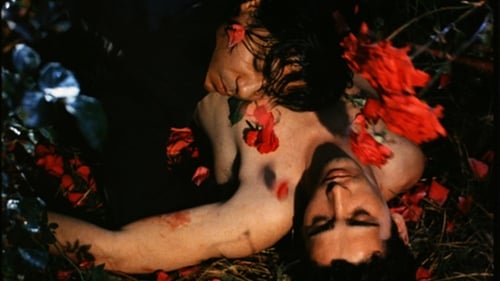
Director of Photography
Albert (Mostefa Djadjam) es un jardinero que está obsesionado con el cultivo de la rosa perfecta. Pero esta obsesión se ve desplazadas por una nueva obsesión, Fernando (Antonio Orlando), a quien sorprende robando las ofrendas devocionales de la pequeña capilla de la finca. Albert retendrá a Fernando en el establo, viniendo amorosamente todos los días para alimentarle y estar junto a él, todo ello bajo la atenta mirada de desaprobación de su madre (Magdalena Moctezuma). Una película con marcadas referencias iconográficas al homoerotismo, sobre todo hacia el final, con imágenes que recuerdan la iconografía de San Sebastián en un intento de crear el ideal romántico de la belleza perfecta.

Director of Photography
A Film by Rosa von Praunheim Nurses on the night shift roll dice to see which AIDS patient will die next. The owner of a gay bathhouse gets Kaposi's Sarcoma but tries to keep his mind on profits. An epidemic victim is harassed by a reporter on his death bed - he sticks her with a contaminated syringe. The government opens a quarantine called Hell Gay Land. Gay terrorists kidnap the Minister of Health. A black comedy filled with everybody's worst fears, A Virus Knows No Morals is Rosa von Praunheim's most controversial film to date: a savagely funny burlesque on the AIDS crisis. Irreverent yet deadly serious, the filmmaker covers just about every aspect of AIDS and its effects, as well as the rumors surrounding it. Since the 1960's von Praunheim has produced a provocative body of underground films, making him one of the New German Cinema's most original artists. "Brave and Vicious – Armed Camp!"

Director of Photography
Wanda is a dominatrix who runs a gallery in a building on the Hamburg waterfront, where audiences pay for the privilege of watching her humiliate her slaves. She is a business woman who smashes sexual stereotypes and social taboos with icy self-possession and an enigmatic smile. As artist she specializes in the staging of elaborate BDSM fantasies and her affairs transgress the usual boundaries of personal and professional life. Along the way she leaves her German lesbian lover, a shoe fetishist, for an American "trainee," and does more than step on the toes of the male performer who has broken the rules of the master-slave relationship by falling in love with her.

Writer
Wanda is a dominatrix who runs a gallery in a building on the Hamburg waterfront, where audiences pay for the privilege of watching her humiliate her slaves. She is a business woman who smashes sexual stereotypes and social taboos with icy self-possession and an enigmatic smile. As artist she specializes in the staging of elaborate BDSM fantasies and her affairs transgress the usual boundaries of personal and professional life. Along the way she leaves her German lesbian lover, a shoe fetishist, for an American "trainee," and does more than step on the toes of the male performer who has broken the rules of the master-slave relationship by falling in love with her.

Director
Wanda is a dominatrix who runs a gallery in a building on the Hamburg waterfront, where audiences pay for the privilege of watching her humiliate her slaves. She is a business woman who smashes sexual stereotypes and social taboos with icy self-possession and an enigmatic smile. As artist she specializes in the staging of elaborate BDSM fantasies and her affairs transgress the usual boundaries of personal and professional life. Along the way she leaves her German lesbian lover, a shoe fetishist, for an American "trainee," and does more than step on the toes of the male performer who has broken the rules of the master-slave relationship by falling in love with her.

Director of Photography
Shot in a neo-expressionist style, the film is a satire on cults of any kind. The plot follows Frankie and Hannes, a young gay couple living in Berlin. One is studying art and the other medicine. Their happy life is disrupted when Frankie attends a lecture and quickly becomes involved in a sinister cult operating as a self-help group called “Optimal Optimism”. Madame C, a former Nazi party member, is the leader of Optimal Optimism. When the cult members discovers that Frankie is gay, he is repeatedly raped by both men and women of the group. Hannes must find a way to rescue him.

Writer
A woman on a train.

Director
A woman on a train.

Director of Photography
A young woman is fed up with the usual consumer's television and begins to make her own television, or more correctly, closevision. She is now a reporter who wanders around Berlin with her camera and 'telecasting apparatus' on her back. Her livingroom has been transformed into a studio and here the different programs are assembled and aired: statements, interviews, realistic and phantastic programs.

Makeup Designer
A young woman is fed up with the usual consumer's television and begins to make her own television, or more correctly, closevision. She is now a reporter who wanders around Berlin with her camera and 'telecasting apparatus' on her back. Her livingroom has been transformed into a studio and here the different programs are assembled and aired: statements, interviews, realistic and phantastic programs.

A young woman is fed up with the usual consumer's television and begins to make her own television, or more correctly, closevision. She is now a reporter who wanders around Berlin with her camera and 'telecasting apparatus' on her back. Her livingroom has been transformed into a studio and here the different programs are assembled and aired: statements, interviews, realistic and phantastic programs.

Director
Blue Distance is set in a train compartment. An androgynous woman thinks of letters a lady wrote to a gentleman about the necessity of separation and the desire for a casual encounter in the future. Another woman, a mirror image of the first, disrupts her reverie. After she leaves it is unknown whether the first woman's wish was about the man with whom an encounter will never take place or about the woman with whom it has just happened.

Writer
Max Taurus, a sort of amateur detective, pursues the traces of general omni-present crime back to a partially demolished house. There, the remaining tenants try to gain pleasure and power from progressive abandonment in order to tear down their own conventionalities.

Director
Max Taurus, a sort of amateur detective, pursues the traces of general omni-present crime back to a partially demolished house. There, the remaining tenants try to gain pleasure and power from progressive abandonment in order to tear down their own conventionalities.

Writer
A young woman in New York.

Director
A young woman in New York.

Animation
The authentic story of Maria Zechmeister who lived in an Upper Austrian village and was convicted of the murder of her husband. There was no evidence and no confession. Only rumors. Maria and the witnesses re-enact the trial before the camera. They tell about the marriage, the time the husband was a prisoner of war and his return from captivity. If he really had been poisoned or if she was a victim of injustice remains open. Maria Zechmeister was pardoned after serving 17 years in prison and lives in an isolated house at the outskirts of the village.

Director
The authentic story of Maria Zechmeister who lived in an Upper Austrian village and was convicted of the murder of her husband. There was no evidence and no confession. Only rumors. Maria and the witnesses re-enact the trial before the camera. They tell about the marriage, the time the husband was a prisoner of war and his return from captivity. If he really had been poisoned or if she was a victim of injustice remains open. Maria Zechmeister was pardoned after serving 17 years in prison and lives in an isolated house at the outskirts of the village.

Director of Photography
A documentary film showing life in one of Hamburg’s homes for seniors. Over the course of six months, Elfi Mikesch interviewed and filmed the inhabitants, concentrating on a female couple who are spending the rest of their lives together in a close and intimate relationship.

Writer
A documentary film showing life in one of Hamburg’s homes for seniors. Over the course of six months, Elfi Mikesch interviewed and filmed the inhabitants, concentrating on a female couple who are spending the rest of their lives together in a close and intimate relationship.

Director
A documentary film showing life in one of Hamburg’s homes for seniors. Over the course of six months, Elfi Mikesch interviewed and filmed the inhabitants, concentrating on a female couple who are spending the rest of their lives together in a close and intimate relationship.

Director of Photography
A German short film

Editor
A German short film

Producer
A German short film

Screenplay
A German short film

Director
A German short film

Director of Photography
"I Often Think of Hawaii" should be a film for the living room, in which the daily fantasies and daily things have unique value.

Producer
"I Often Think of Hawaii" should be a film for the living room, in which the daily fantasies and daily things have unique value.

Editor
"I Often Think of Hawaii" should be a film for the living room, in which the daily fantasies and daily things have unique value.

Writer
"I Often Think of Hawaii" should be a film for the living room, in which the daily fantasies and daily things have unique value.

Director
"I Often Think of Hawaii" should be a film for the living room, in which the daily fantasies and daily things have unique value.
